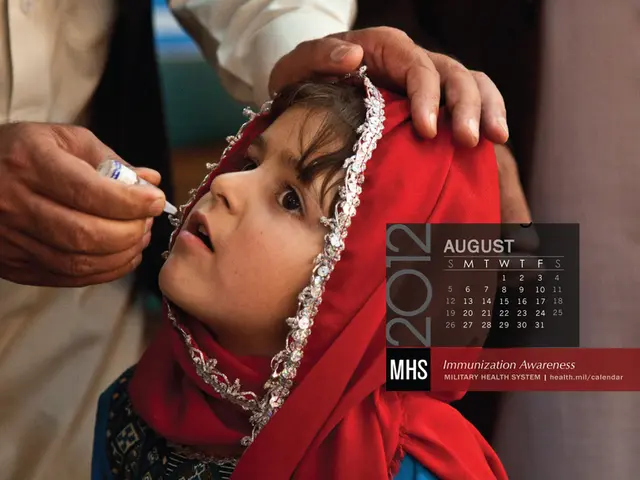MRSA Spread: Understanding Transmission Methods, Preventive Strategies, and Further Insights
Living with MRSA, the Antibiotic-Resistant Bacteria
Having MRSA (Methicillin-resistant Staphylococcus aureus) hitchhiking on your body might not necessarily cause trouble, but it's a cause for concern in healthcare circles. This sneaky bacterium can pop up in moist areas like your:
- Nose
- Throat
- Groin
- Armpits
- Skin folds
- Perineal area
While you might not feel a thing, MRSA colonization could potentially spread, leading to infections—especially in healthcare settings. And when it comes to MRSA, you want to keep a safe distance. That's because MRSA infections are caused by a pesky strain of Staphylococcus aureus that's resistant to many common antibiotics, like methicillin, penicillin, amoxicillin, and oxacillin. This makes the little buggers harder to beat, potentially more dangerous for the vulnerable.
MRSA can make a move through:
- Close contact with infected or colonized individuals
- Sharing dirty equipment or supplies
- Environmental contamination of household surfaces
Sometimes, MRSA colonization can lead to infection, especially if your immune system is compromised or you've got an open wound. That's why it's essential to stick to cleanliness guidelines:
- Wash hands and take regular showers with antiseptic soap
- Keep wounds covered and clean
- Avoid sharing personal items like towels, razors, clothes, and bedding
- Wash clothes, sheets, and towels in hot water and dry on high heat
- Regularly disinfect surface areas
In medical settings, healthcare professionals might screen for MRSA bacteria, especially for those heading into surgery. They'll swab common infection zones if they suspect you're a carrier. If they find MRSA colonization, they might prescribe a nasal cream or spray, body wash, and shampoo to help reduce the MRSA bacteria. You'll likely need to use these for around 5 to 10 days.
Watch out for signs of skin infection, especially where your skin's been cut or scraped. Signs of MRSA infection include:
- Pain
- Redness
- Pus
- Swelling
- Warmth to the touch
By keeping clean and following these guidelines, you can help lessen your chances of getting MRSA colonization or infection.
FAQ
- Does MRSA just go away on its own?
- Can chlorine kill MRSA?
- Will I always carry MRSA bacteria?
- MRSA, an infectious superbug, can linger on your body and potentially cause chronic diseases, especially in vulnerable individuals or those with weakened immune systems.
- Science is constantly seeking solutions to combat Methicillin-resistant Staphylococcus aureus and other antibiotic-resistant bacteria, as they pose a substantial threat to health and wellness.
- Medical-conditions like cancer, respiratory conditions, digestive-health issues, eye-health problems, hearing difficulties, and neurological disorders make people more susceptible to MRSA infections.
- Autoimmune-disorders, mental-health problems, and various skin-conditions also increase the risk of contracting MRSA and its potential complications.
- Regular fitness-and-exercise, proper nutrition, and therapies-and-treatments can bolster overall health and help protect against MRSA infections.
- Cardiovascular-health is crucial in maintaining a strong immune system and dealing with MRSA infections effectively.
- Skin-care practices, such as cleaning and covering wounds, avoiding sharing personal items, and washing clothes thoroughly, can help prevent MRSA colonization and infections.
- Chlorine can help kill MRSA on surfaces, but it's not always the magic bullet for eliminating the superbug completely.
- Despite regular hygiene practices, there's no guarantee that you won't carry MRSA bacteria again, but followings guidelines can reduce the risk of consulting with healthcare professionals to screen for MRSA if needed.
- Keeping a close eye on your skin, and being aware of signs of skin infection, like pain, redness, pus, swelling, and warmth, can help in identifying potential MRSA issues early and begin proper treatments promptly.








